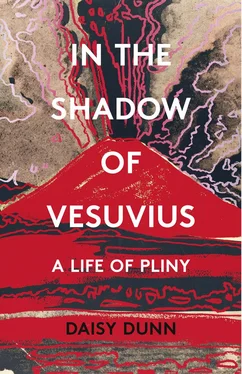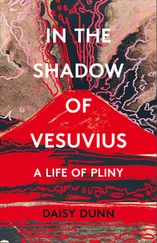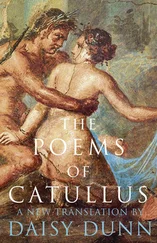Pliny the Elder could not take credit for being the first man to speak of the oyster and pearl’s susceptibility. Over a century before him, Sergius Orata, the first Italian to cultivate oyster farms at decadent Baiae in the Bay of Naples, had taken to transporting oysters from Brundisium (Brindisi) in Italy’s heel and depositing them in the Lucrine Lake in Campania. 47Once the oysters, ordinarily farmed on ropes, had absorbed the lake’s delicious waters, it did not matter where they started life. Their high price depended on people’s belief in their ability to absorb the richness of their surroundings.
Pliny the Elder had not liked the idea of Romans risking their lives to retrieve oysters from the depths when they might have grown all they needed in simple kitchen gardens. If he quaffed the occasional one it was not because he aspired to eat ‘the palm of our tables’. 48Provided an oyster was good – sealed, not too slimy, not too meaty, more striking for its thickness than diameter, caught neither in mud nor on sand but on a hard surface like a rock – he believed that the odd one might benefit his health. Oysters, he said, can settle the stomach and soften the bowels, restore the appetite and plump the skin, purge ulcers from the bladder, chase chilblains from the toes, and reduce the size of swollen glands. 49The oyster was therefore a paradox. Luxurious on the one hand and healing on the other, it defied the kind of clear moral classification that Pliny the Elder liked to apply to the things around him. While the oyster was multifarious enough to earn his interest, Pliny the Elder was on balance reproachful: ‘There is no greater cause for the destruction of morals and rise of luxury than shellfish.’ 50Given his friends’ manners, his nephew Pliny was inclined to agree.
In his abstemiousness and censoriousness towards shellfish, Pliny proved himself to be very much his uncle’s son. When his friend and fellow equestrian Septicius Clarus failed to show at his snow-and-spelt dinner, he assumed it had been because he had gone after the oysters and sea urchins on offer elsewhere. It was not like him to be tempted away by oysters: Pliny counted no one in his acquaintance ‘truer or more straightforward, accomplished or trustworthy’. 51On close enough terms with Pliny to have him assist in promoting his nephew to the senate, Septicius must have taken his teasing letter in good grace. Sue him for every morsel of food he had missed? He must be joking. The few surviving details of Septicius’ life shed light on his respectability. He was named as the dedicatee of Pliny’s collected letters as well as the most important biographical work of the age, Suetonius’ Lives of the Caesars.
Some years after Pliny’s death, Septicius Clarus and Suetonius travelled to Britain. Following their landings under Claudius, the Romans had suppressed the revolt of Boudicca in AD 60 or 61 and worked their way steadily northwards to conquer much of England and Wales. In AD 122, Trajan’s successor, Hadrian, launched an expedition to settle pockets of unrest and begin work on the wall that would eventually stretch from the east coast to the west and mark the northernmost frontier of the Roman empire. Septicius was praetorian prefect, Suetonius private secretary to the emperor. Both were powerful roles into which they appear to have relaxed only too easily. In the course of the British campaign they were dismissed from their posts, both allegedly on grounds of overfamiliarity with Hadrian’s wife. 52It was a late and fallible source that cited the reason for their dismissal, but it may just be that Septicius finally got his comeuppance for the shameless social climbing Pliny had scolded him for.
As for Suetonius, Pliny would have been surprised he had it in him. Before becoming a prolific author, Suetonius had cut a shy and self-doubting figure, at least when Pliny was around. He was less than ten years younger than Pliny but emerges almost boy-like from the Letters . 53Reticence was his defining characteristic. Pliny once helped him to secure a small estate and, as a first step towards public office, a military tribunate, or junior post, which Suetonius passed on to a relative. 54While Septicius Clarus ‘often urged’ Pliny to publish his letters, Pliny practically implored Suetonius to publish work of his own. Prior to his Lives, Suetonius completed a biographical compendium of famous men, including Pliny the Elder, which Pliny must have been eager to see released into the world. 55Within their circle of mutual encouragement, Pliny confessed to being ‘hesitant about publishing’, but Suetonius outdid ‘even’ him in his ‘dallying and delaying’. 56
By the time Suetonius decided to try his hand at law, he was suffering from nightmares. He must have been in his late twenties when he wrote to Pliny seeking an adjournment to a trial on the basis of having had bad dreams. A more bullish lawyer might have told him to pull himself together, but Pliny was sympathetic. A perfectionist who was ‘never so prepared as to not rejoice at a delay’, Pliny had also experienced dreams in the past which appeared to augur ill for his cases. 57Around the time he embarked upon his legal career Pliny married for the first time. Nothing is known of his first wife, but he recalled in a letter how he was about to proclaim against ‘very powerful citizens and even friends of the emperor’ when he dreamed that his mother-in-law got down on her knees and begged him not to go through with the trial. The Romans believed that dreams merited deep consideration on the basis that they might have some bearing upon waking life. Like the Greeks before them, they realised that, while some dreams come to pass, others presage a less obvious result.
Any dream involving a mother figure was always ripe for discussion. On the Interpretation of Dreams , a definitive guide in five volumes, was published a generation after Pliny died and laid out what could come of nightly visits by matriarchs. The book was an important influence on Sigmund Freud, who read it before writing his Interpretation of Dreams in 1899, and described a number of possible scenarios. A senator like Pliny who might dream of having sex with his mother had reason to rejoice, provided he had adopted the missionary position; the mother symbolised the state, and one who governed his partner sexually could be sure to govern well politically. 58But a man of fragile health who dreamed of having sex with his mother on top, might predict his own death – for earth, Mother Earth, does not lie above the living. Such earthy thoughts could not have been further from Pliny’s conscious, but at their root lay the old idea that, for all the many things a dream can symbolise, Sleep is little more than a shadow of Death.
Since adjournments were not permitted in the Court of One Hundred, Pliny had had no choice but to ignore the warning of his dream and go through with his trial. The words he had used to reassure himself then were the words he used now to reassure Suetonius: ‘The best thing is to fight for one’s country.’ 59With this hearty expression of patriotism, a quote from Homer’s IIiad, the young Pliny had stormed into the basilica, confronted the opposition, and promptly won his case. He recommended that Suetonius did the same. If his dream rendered the prospect of doing so too frightening, then Suetonius was well advised to interpret it to a better outcome. As Homer had illustrated, dreams were meaningful or meaningless depending on which of two gates they issued from. There was a gate made of horn and another of ivory. Dreams which poured through the ivory gate, according to Odysseus’ wife Penelope, were empty. But those which passed through the horn gate ‘bring the truth to pass whenever a mortal sees them’. 60It was to the gate of ivory, through which ‘the spirits of the dead send false dreams towards the sky’, that Aeneas and the Sibyl were led as they prepared to leave Hades in Virgil’s Aeneid. 61By departing through the gate of false dreams it was as if their journey to the land of the dead had never happened.
Читать дальше












